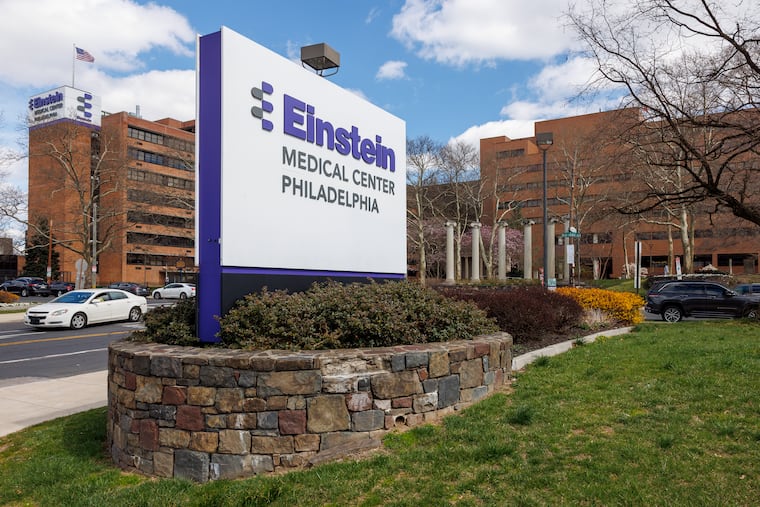Jefferson’s resident physicians at Einstein vote to unionize
Jefferson Health “respects the decision of our residents and fellows to vote in favor of unionization,” a spokesperson said in a statement.

Resident physicians and fellows at Einstein Healthcare Network, which is owned by Jefferson Health, voted to unionize on Wednesday, joining a broader labor organizing movement among physicians in the Philadelphia area and nationally.
The doctors-in-training voted 356-35 to join the Committee of Interns and Residents, a division of the Service Employees International Union, the union said in a news release.
In a statement, a Jefferson spokesperson said that the health system “respects the decision of our residents and fellows to vote in favor of unionization.”
“We remain committed to maintaining an environment of exceptional medical training, open communication, and collaboration to ensure the success and well-being of our residents as we deliver outstanding patient care,” the spokesperson wrote.
In November, Einstein residents announced their plans to unionize along with 3,000 physicians training at Children’s Hospital of Philadelphia, Temple University Hospital, Thomas Jefferson University Hospitals, and the Delaware-based ChristianaCare health system. Last month, CHOP residents and fellows narrowly voted against unionizing by a 17-vote margin.
Residents at the other hospitals are set to hold their own votes in the coming weeks.
The move is part of a wave of organizing activity among doctors in the Philadelphia region, who have not historically been part of labor unions.
Last fall, residents at Penn Medicine and the Rutgers University health system finalized their first contracts with their health systems. And last summer, attending doctors at ChristianaCare became the first group of post-training physicians in the region to unionize.
The shift takes place amid a changing landscape for doctors’ employment: Most now work for health systems instead of at their own private practice. And residents, in particular, have been organizing in increasing numbers around the country. About 20% are currently in a union.
In Philadelphia, residents have cited grueling working conditions and relatively low pay in their efforts to unionize. Resident physicians can work up to 80 hours a week for, on average, about $61,000 a year — less pay than employees in other fields who require special training, like flight attendants and electricians, the New England Journal of Medicine’s Resident 360 website reported.
“We’re going to ensure that our health-care system prioritizes patient care, not executives’ paychecks. More and more physicians are stepping up and we’re so excited to be part of this growing movement of healthcare workers unionizing,” Grace Cho, a resident physician training in psychiatry at Einstein, said in the union’s statement.